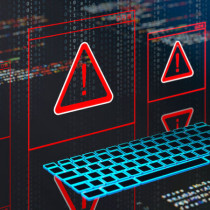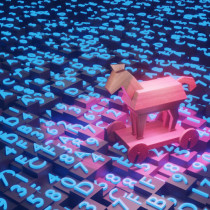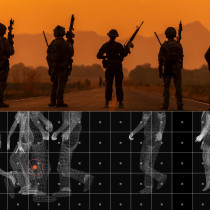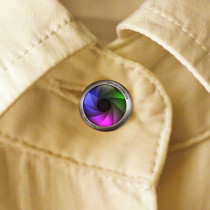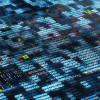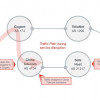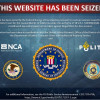Women Hackers Unite!
Hackers: Not Always Bad And Not Just a Man's Club
J.D. Biersdorfer New York Times Service
Friday, June 8, 2001
NEW YORK When Sarah Flannery was 16 in 1999, she won
Ireland's Young Scientist of the Year award for her work in
Internet cryptography.
Although she is described in a recent book, "The Hacker Ethic,"
as "a 16-year-old hacker," Ms. Flannery, who is now 19 and
studying computer science at Cambridge University, is not quite
sure how to feel about that description.
"I haven't read the book," she said. "I've been a bit confused about
what a hacker really is."
She is not alone. The word "hacker" calls to mind two stereotypes.
The first is that hackers are bad guys. Among those who call
themselves hackers, a"hacker" is generally defined as someone
who loves to write precise programming code and takes joy in
exploring the nooks and crannies of the Net - including places that
some would prefer they not explore.
The second stereotype is that hackers are guys. In fact, women
who consider themselves hackers, as well as women like Ms.
Flannery who just plain enjoy math and technology, have been
part of the computer world for decades. Some are prominent for
their accomplishments; all tend to stand out in their field because
they are women.
Ms. Flannery has written about her adventures as a young
mathematician and cryptographer in "In Code: A Mathematical
Journey," a book written with her father, David Flannery, and
published this month in the United States by Workman Publishing
Co.
In her book, Ms. Flannery writes of her experiences in Dublin
during a stint at Baltimore Technologies PLC, where she began to
work seriously on what became her prizewinning Cayley-Purser
algorithm - named after a mathematician and a cryptographer -
which could be used for faster encryption of information on the
Internet.
Most of her work with the company was, not surprisingly,
alongside men.
"The women tended to be managers and secretaries and not to be
involved in the technical side of things," Ms. Flannery recalled. "I
wasn't treated any differently for it, though."
But women with longer careers in technology say that, for better
or worse, it is still difficult to avoid being a curiosity. "The
assumptions made about you when you get into a technical field
are that you're either a feminist," said Carole Fennelly, 39, a Unix
programmer since 1980, "or you're trying to make a statement, or
you're some sort of supergenius. I'm in technology because I
happen to like it. I'm not trying to make a statement, and I don't
want to be treated differently."
Ms. Fennelly is a partner in Wizard's Keys Corp., a
computer-security consulting firm in Tinton Falls, New Jersey, that
she founded with her husband.
Jude Milhon is a longtime programmer who taught herself the
Fortran computer language from a library book in the 1960s. Ms.
Milhon went on to work as a programmer and was an editor at
Mondo 2000, a cyberculture magazine published in the early
1990s. In addition to being an author and a programmer, Ms.
Milhon, who is widely known by her online name, St. Jude, was
cited as one of the first known female hackers by Steven Levy in
his 1984 book, "Hackers: Heroes of the Computer Revolution."
"My own definition of hacking," Ms. Milhon said, "is the clever
circumvention of imposed limits, whether imposed by your
government, your own skills or the laws of physics."
The stereotype says a hacker is a solitary teenage boy who stays
up all night in his bedroom trying to knock the Pentagon's Web
site off the Net, and indeed, Ms. Milhon said, the image is not
altogether false. Teenage boys, susceptible to boredom and a
feeling of powerlessness, "are the universal soldiers of hacking,"
she said.
But there are women who hack, and many learn their skills where
they are outnumbered by men: in the rough-and-tumble online
enclaves that hackers frequent or at hacker conventions.
An Australian hacker who goes by the online handle of Blueberry
has similar memories of her early days in the hacker stomping
grounds in Internet Relay Channel chat areas, which she compares
to a men's smoking room.
She said women could silence derogatory comments from older
hackers by proving their technical prowess. "You have to earn the
respect," she said.




